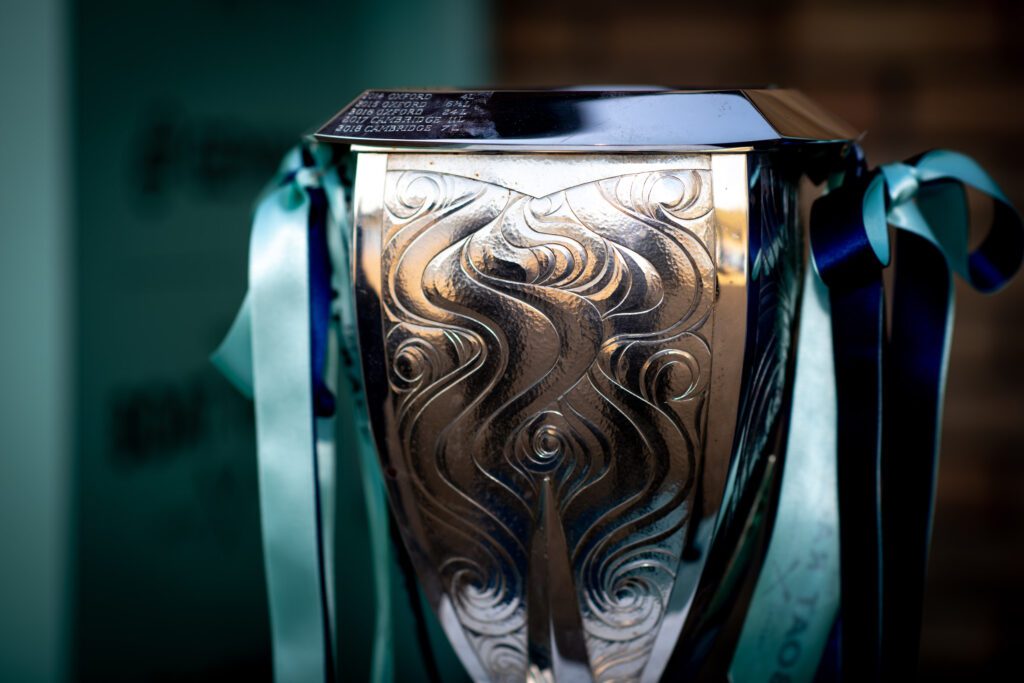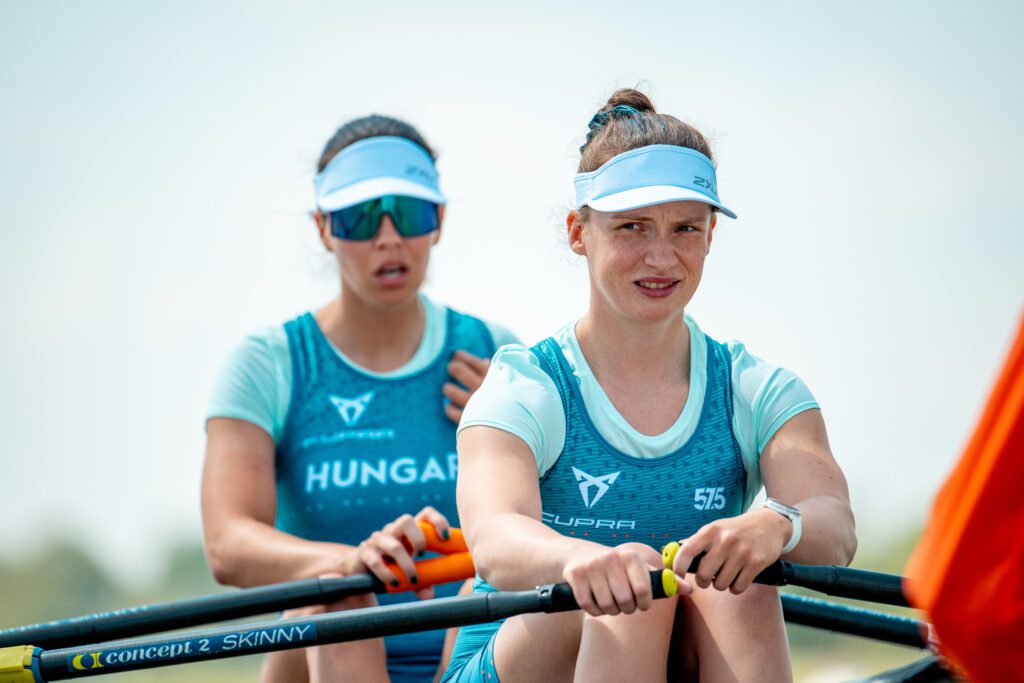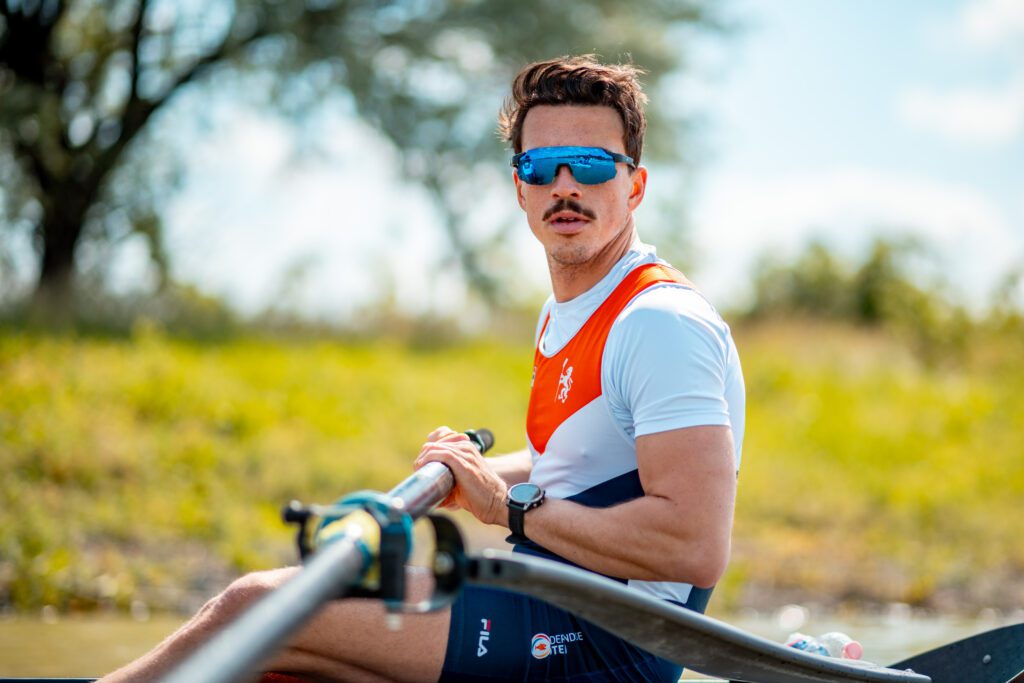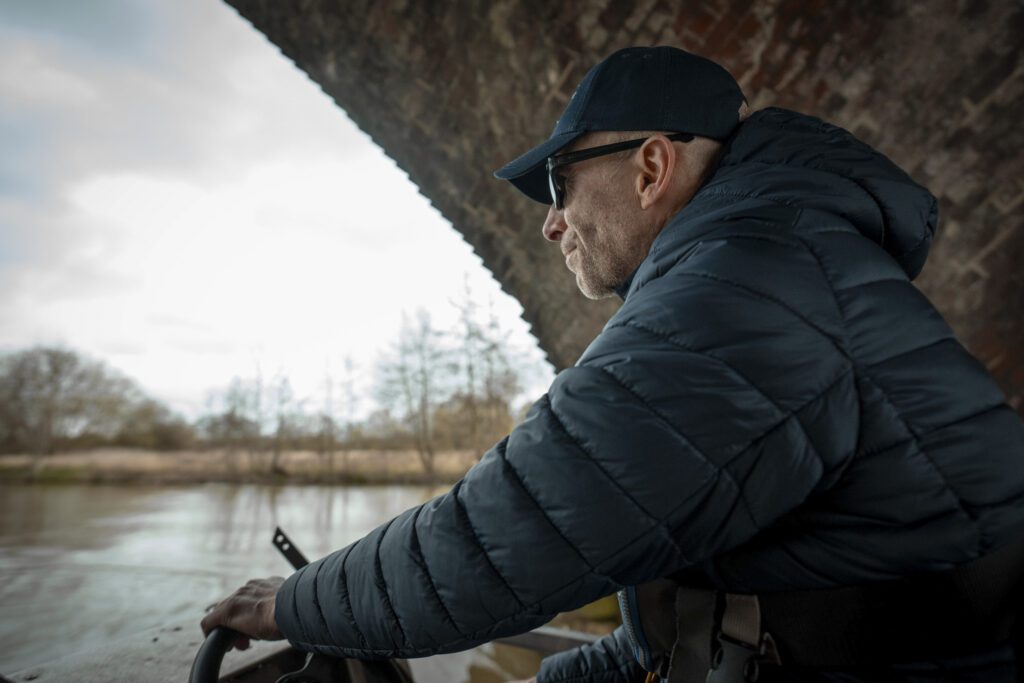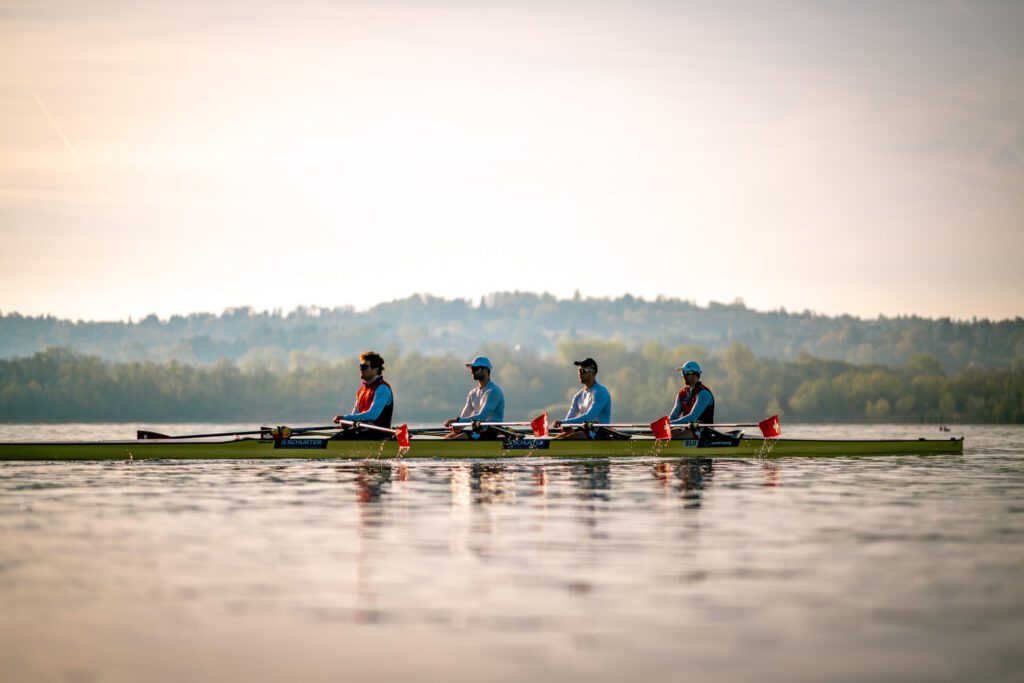As the rowing world turns its eyes towards Easter Sunday’s Boat Races, eager to see some live unscripted action on the water for the first time in months, I’ve spent most of the week disappointing broadsheet editors who want me to tell them that this pair of races will be unprecedented. That the crews will race at completely different rates from normal, or that the coxes have nothing to do at all because the Ely course to which the Tideway race has moved is straight (though I know some dinosaur rowers who probably still think there’s no point to coxes making tactical and motivational calls.) That the coaches will have selected completely different types of athlete, as if straight-line racing required new body types.
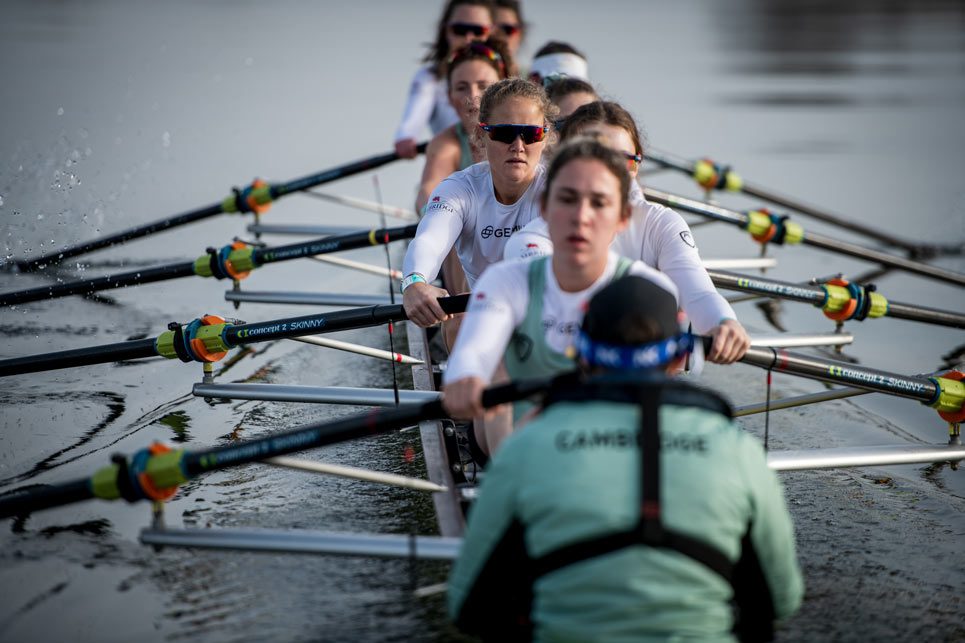
Photo CUBC Women in Ely Wednesday
Credit Benedict Tufnell
Sorry guys (and yes they are nearly all guys), rowing is just not like that. Now the newshounds have run off to cover a different and much more worrying storm which has engulfed Oxford’s rowers this week, and which is expected to see OUWBC’s rowers wear ribbons on Sunday in support of victims of sexual assault. Meanwhile on a river which has only ever seen an unofficial race once before, the real action is about to take place.
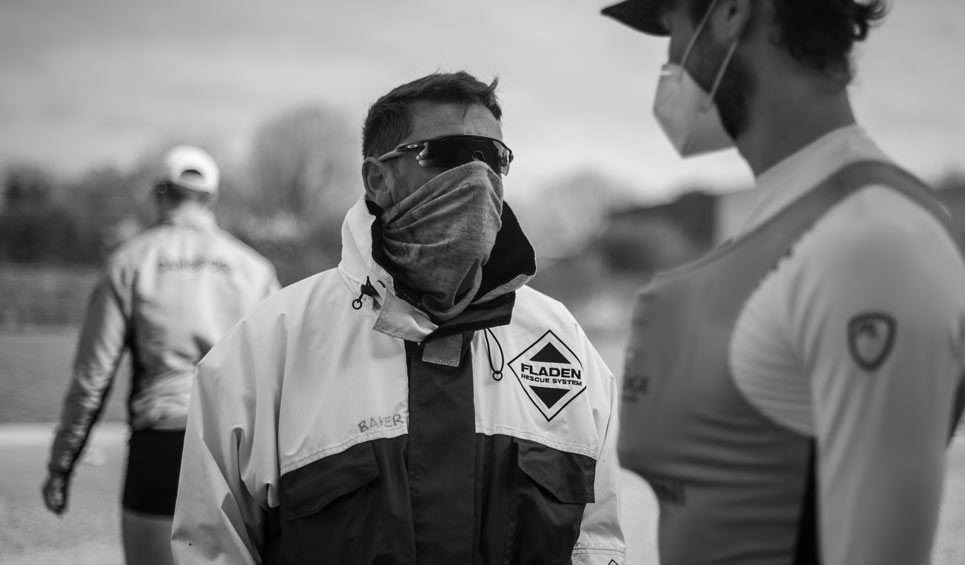
Photo CUBC Men’s Coach Rob Baker
Credit Benedict Tufnell
Talking to the coaches what stands out is how difficult it has been for them to find a way through the uncertainty and confusion of changing rules, and to keep some kind of training plan intact. “It’s hard to compare it all really so you try not to!” says CUBC’s Rob Baker. “It just hasn’t been anything like a previous Boat Race so you’ve got to rewrite the year and look at what’s ahead of you, what’s in front of your face, what have you got to do right now. That’s been the mantra all year for me.” However, he put himself in a good position when spotting that winter lockdowns were likely, and encouraging his new top graduate freshers to live with existing squaddies. “We’ve been lucky with a couple of rower households, that’s really made a big difference to us. We’ve got five guys in the Blue Boat who all live in the same house.”
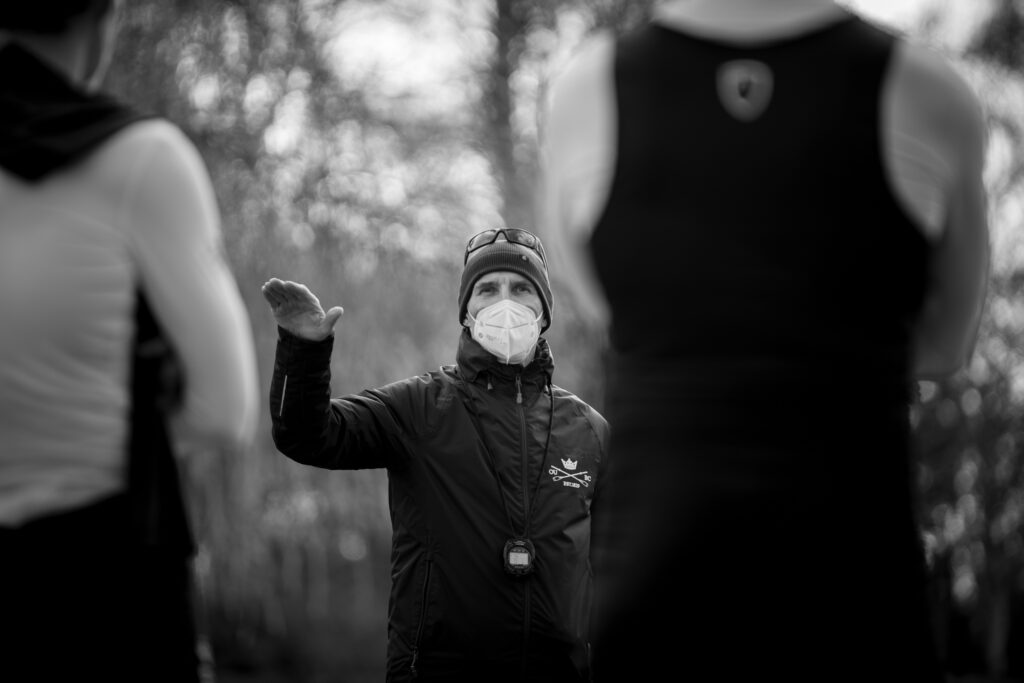
Photo OUBC Coach Sean Bowden
Credit Benedict Tufnell
His rival Sean Bowden, OUBC’s head honcho now for 24 years, also used his crystal ball to good advantage, twigging early on that selection time on the water would be limited. “We saw this coming and so we tried to get a good amount of selection testing in whenever we had opportunities”, he explains. “We didn’t just stick to a standard periodised programme and get to January-February and think ‘what do we do’. We have chopped and changed around a bit to get a good amount of selection done, and we’ve got the blocks of training in we think are necessary to be able to race. They may not be done in a traditional order but they’re sort of in there.” Bowden points out that OUBC has been challenging orthodox periodisation theories in recent years, but even more so this season. “Because of the lack of time, and the need to make sure you don’t get caught short too badly at the end. You can’t just say ‘sorry we didn’t get all that stuff done, we were in lockdown’….”
All the coaches selected rapidly once their athletes were allowed back on the river on 7th March in a special deal negotiated with British Rowing who steer COVID regulations for the sport on behalf of the government. A week or so’s grace period to acclimatise to water training again — and to let delicate hands develop useful calluses — and then brisk seat racing confirmed the final decisions. “We only had four weeks: we could have done selection over the course of 2-3 weekends, take as much time as we possibly can to get it right, but we made the decision we’re going to do what we think we need to do, and select what we think is the best boat”, says CUWBC’s Robert Weber. “It left a couple of people out that were pretty upset, I suppose they had every right to be, but I think the decisions we made were supported by the data. Under different circumstances we probably would have done more, but I think we have the right crew.”
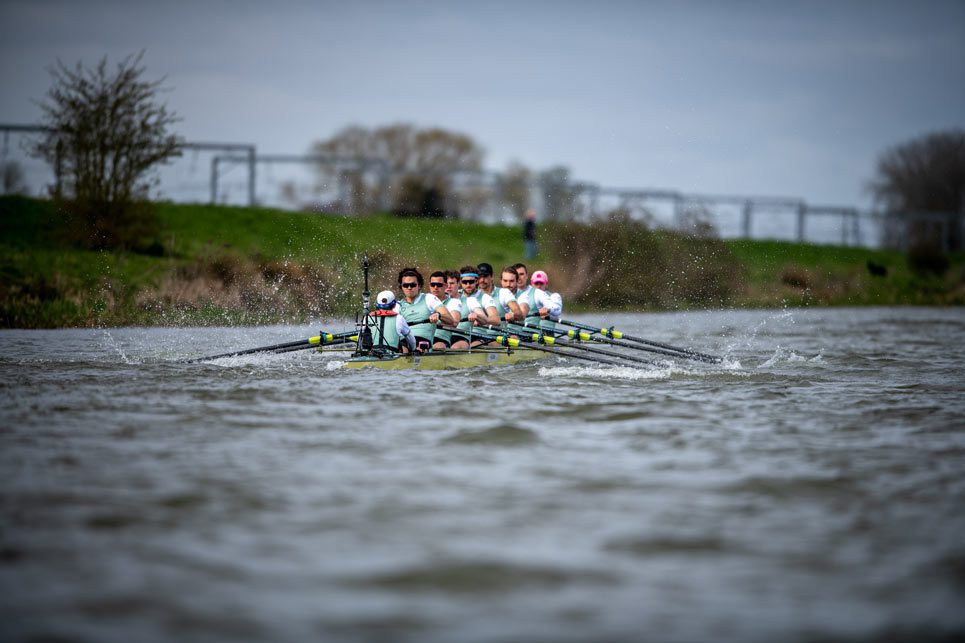
Photo CUBC doing practice starts Friday
Credit Benedict Tufnell
“If we’ve only got four weeks to prepare do we really want to be trying to teach people to row – we just want to be coaching a crew”, says Bowden. “So we had in our pocket a combination that would click along together quite easily. And then I had some backup guys who were a bit stronger. Then once we’d got a good pattern of rowing going, it was “what contribution can these people make – do they detract from the pattern of rowing or can they fit in?”
Some strong but inexperienced rowers who might in a normal year have developed their skills may have been left out this time, but let’s hope they get their chances in future. There wasn’t any time to wait and see, not with a maximum of 12 athletes and 2 coxes allowed to water-train for each squad. The spare rowers and coxes have travelled to Ely with the Blue Boats this week, remaining on standby in case of illness or injury and part of the formal squad bubbles. For OUWBC’s chief coach Andy Nelder, one of his closest selection decisions means he has full confidence in his spares. “It was really tight so we’d obviously prefer to have our chosen people, but if we do have to end up with a sub we won’t have an issue. It’s not the end of the world.” He shuffled his bow-side on Friday, moving Katie Anderson back to bow and the rest forward a place each, putting Canadian Julia Lindsay into the seven-seat.
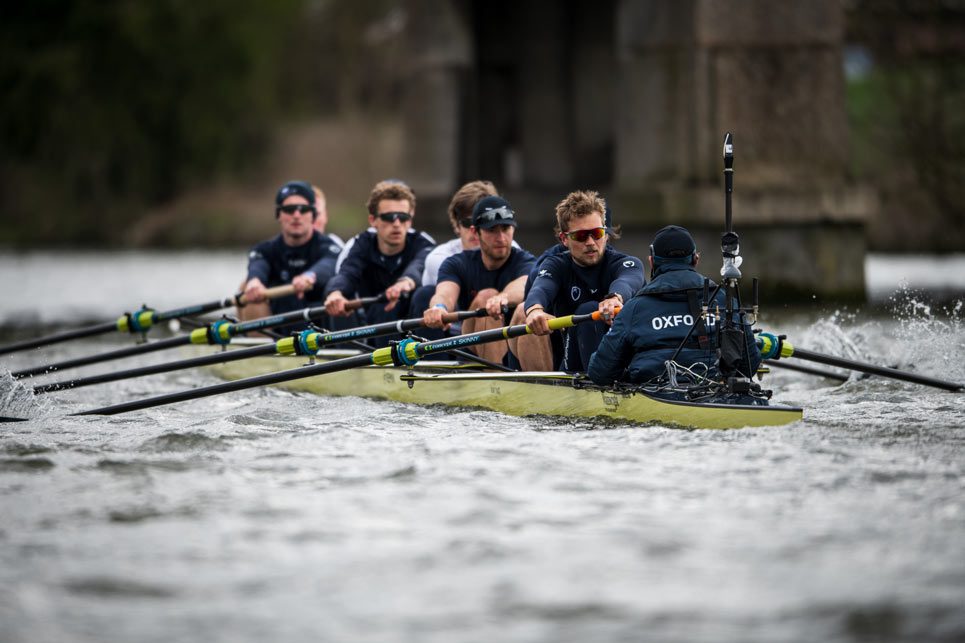
Photo OUBC during practice starts on Friday afternoon
Credit Benedict Tufnell
The complete lack of prior racing means coaches having to spend more time preparing the crews psychologically for the pressure of the day. “Fixtures are always important: if you look at any sport, people tend to use matches and fixtures and races to build both fitness and knowledge”, says Bowden, though he points out that preparation doesn’t always help. “Why is it that you turn up at a fixture and it’s not as good as you want it to be? It’s a bit like why do so many crews go to the Olympics and row badly in the [first] heat when they’ve got four years to prepare for that race. So it’s how do we train and prepare so that if we fail we fail in the safest way, we don’t have one of those disastrous rows and go ‘oh god I didn’t see that coming’.”
Both he and Baker remark that all years seem new, even returning athletes reacting variably to the same training the second time around. “Everything is different, but also nothing”, says Baker. “Every year the group is different and how you find you motivate the changes depending on the situation with the people you’ve got in the room.”
For once, being able to steer the idiosyncratic Tideway stream is not a priority, so coxes who don’t touch the rudder will earn the gratitude of their crews. “There is less reason [to shove for inches] and there shouldn’t be coxes pushing each other about”, says Baker who has spent most of the last 20 years coaching Light Blue crews on the Great Ouse. “The stream is very light, and it spreads over the river pretty evenly. You wouldn’t want to be tucked in the bank out of the stream, but there really isn’t anything to be gained from pushing [others] around. We want a clean race, it’s got to be about the rowing not the steering here. I’m hoping for a rowing battle rather than anything else.”
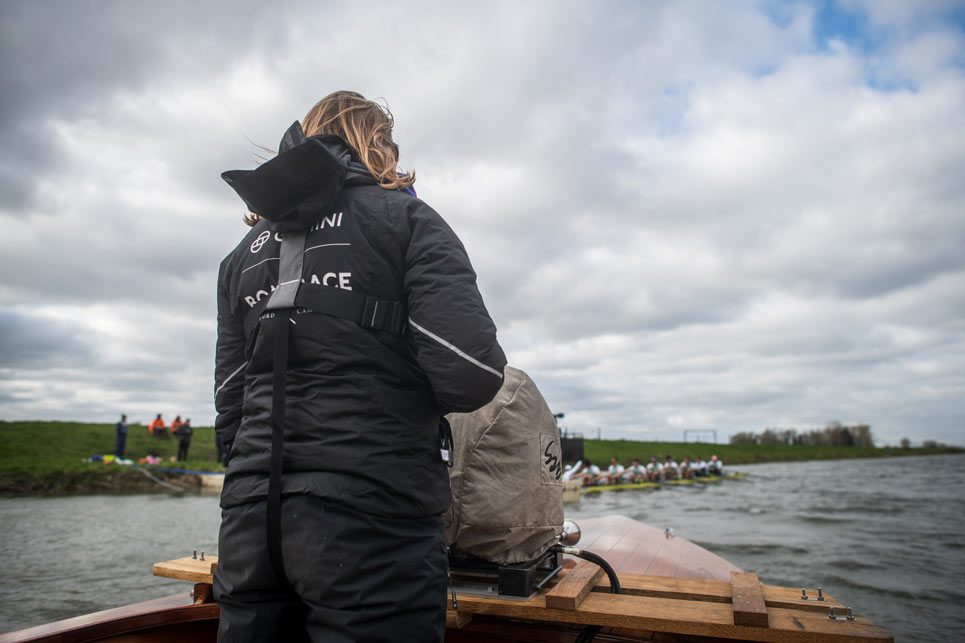
Photo Sarah Winckless oversees practice starts on Friday
Credit Benedict Tufnell
Still, traditions can be hard to break and Sarah Winckless, making history this weekend as the first woman to umpire the men’s race, expects some clashing even though all it would do is slow both down. “Whilst my cold-headed logical view says we should be seeing a race where the coxes give the other crew ample room, not fight for mythical best water, we could be watching a race where the habit kicks in and they still try to find the centre line. I’ve asked the crews to let their blades come no closer than 2-3 metres which will give them ample room to get into the better water and away from the sides.”
What else do we have to speculate about? Weather-wise the headwind of the last few days is expected to veer cross-tail on Sunday morning, and to keep a steady but not excessive largely tail force all day. That means quick races and a slight preference for the western (“Rail”) side rather than the eastern (“Road”) station for those presidents who win the toss. Look the Queen Adelaide Bridge up on a map if you don’t understand the labels….. But the shelter aspect will be less significant than in the middle of London, and Weber won’t be bothering to install pumps in the CUWBC shell: swamping conditions are not at all likely and the conditions when the crews boat — having pre-recorded their spectator-free walking out parades for the BBC earlier in the morning — will not change before the umpire’s flag drops.
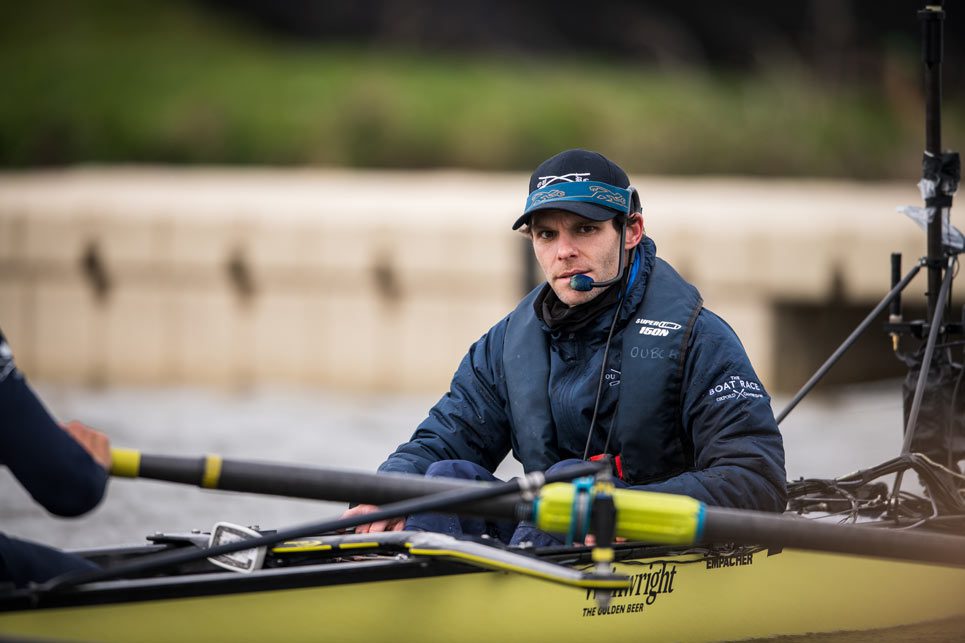
Photo Jesse Oberst, OUBC Blue Boat cox
Credit Benedict Tufnell
Breaking with tradition this year the Boat Race organisers are refusing to release individual athlete weights, so all we have are the combined totals which suggest that there is nothing to choose between the women’s weights but that the Oxford men are a couple of pounds a man heavier than their Cambridge rivals. The relative lack of form and information has thrown the bookies, most of whom aren’t offering odds on the races, though Betfair favour Oxford at 1/2 over Cambridge at 6/4 for the men’s race and Cambridge at 1/7 over Oxford at 7/2 for the women’s race, as of Saturday evening.
As hosts Cambridge have lent Oxford a boat-bay in their boathouse, though what the Dark Blues made of the permanent sign saying “THIS IS WHERE WE PREPARE TO WIN BOAT RACES” in light blue over the entrance, who knows. Talk about giving your opposition a reason to pull harder. Oxford also have a marquee beside the building so that they can change and have down-time in private, and training has been carefully scheduled so that the squads wouldn’t meet on the water. King’s School Ely nearby have given Oxford accommodation, and the BBC has been busy all week installing their usual cameras, cables and trailers. The start will be a pontoon raft swung out from the side of the river, a lot more convenient than the tiny workboats usually needed in London, and for the first time in decades the Blue Boats won’t have to reverse-square their oars as the lack of strong stream means a normal 2km race start at frontstops. Less to practice for everyone.
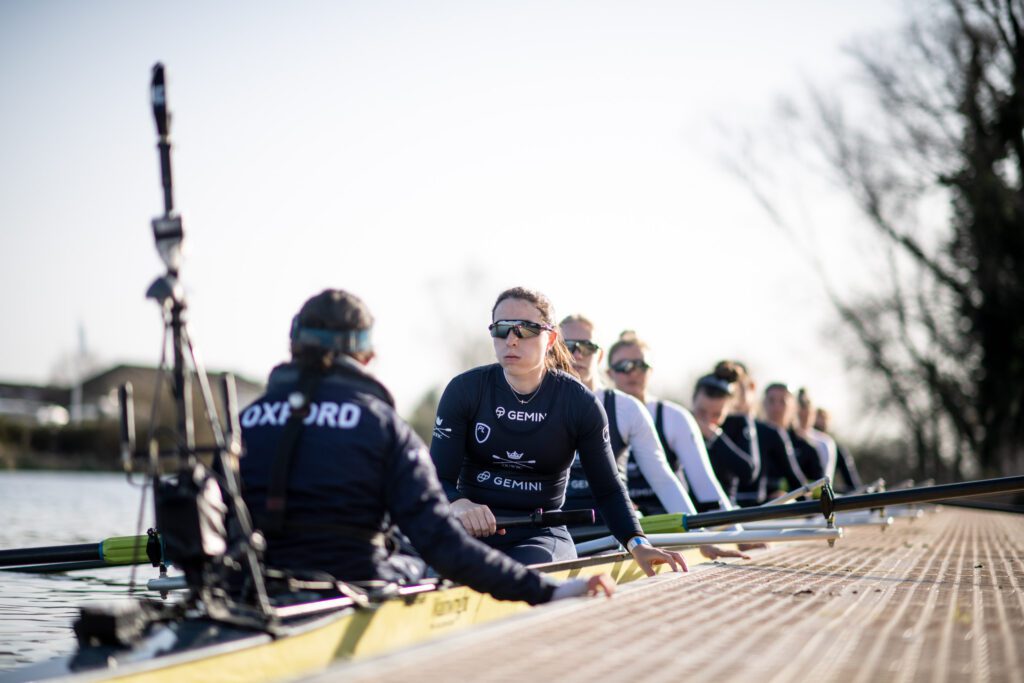
Photo OUWBC pre-race training on Sunday morning
Credit Benedict Tufnell
The stats are there: Weber and Baker have won their only races with their current squads, while Bowden has coached Oxford to twelve wins and ten losses in his 22-race series at the dark blue club but lost the last two. Nelder, though winning the majority of his Isis-Goldie races as reserve coach, including a 7-victory series from 2011 to 2017, has yet to see a win with the Oxford women. “I’ve tried winning and I’ve tried losing and I’ll tell you which one I like”, was his parting shot. And now it’s about to become real and the biggest ever move in Boat Race history looks set to succeed.
“Earlier in the year I was a bit sceptical about it, so much of the Boat Race seems to have been around the Thames and the Tideway”, says Baker. “But as the year’s gone on we know that this is the safest way to race the race and it feels like Boat Race right now to me, incredibly so. The energy, the buzz, there’s so much preparation going on around the boathouse and down the course, it really does feel like it far more than I would have imagined.”
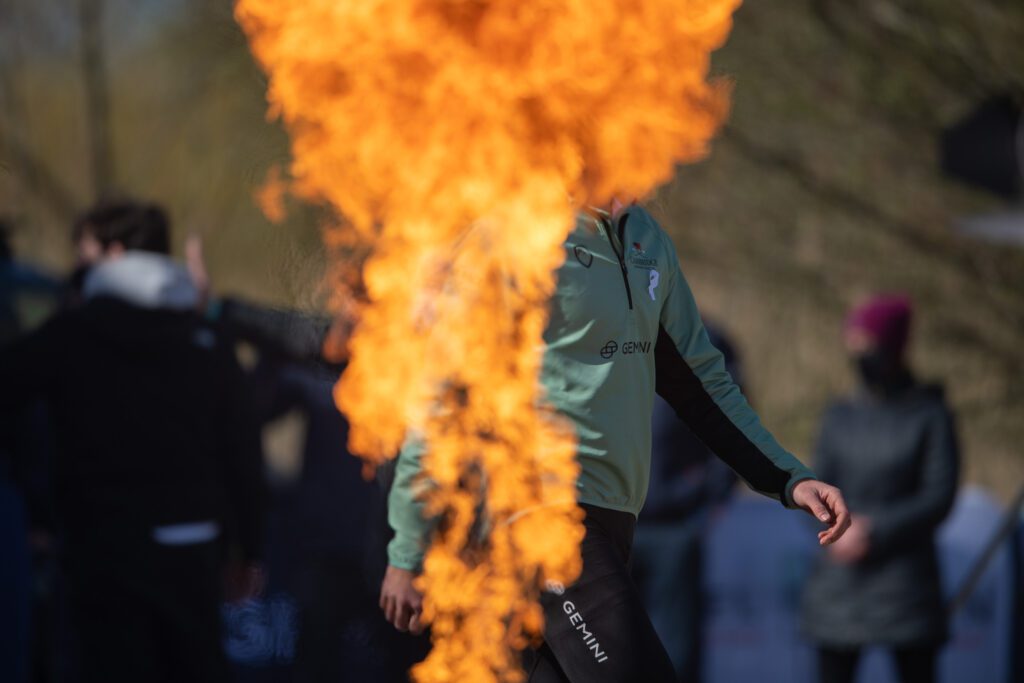
Photo Flame throwers at the boathouse on Sunday morning for BBC pre-recorded crew walkouts
Credit Benedict Tufnell
Weber, though least invested yet in the historic race, put his finger on the most important point after last year’s complete cancellation. “Seven of mine were named last year in the Blue Boat. Just getting to the start line this week is a big deal. A lot of them have been training for the better part of two years for this race.”
Two years, towards outcomes which will be settled on the Great Ouse. Good luck to them all.
